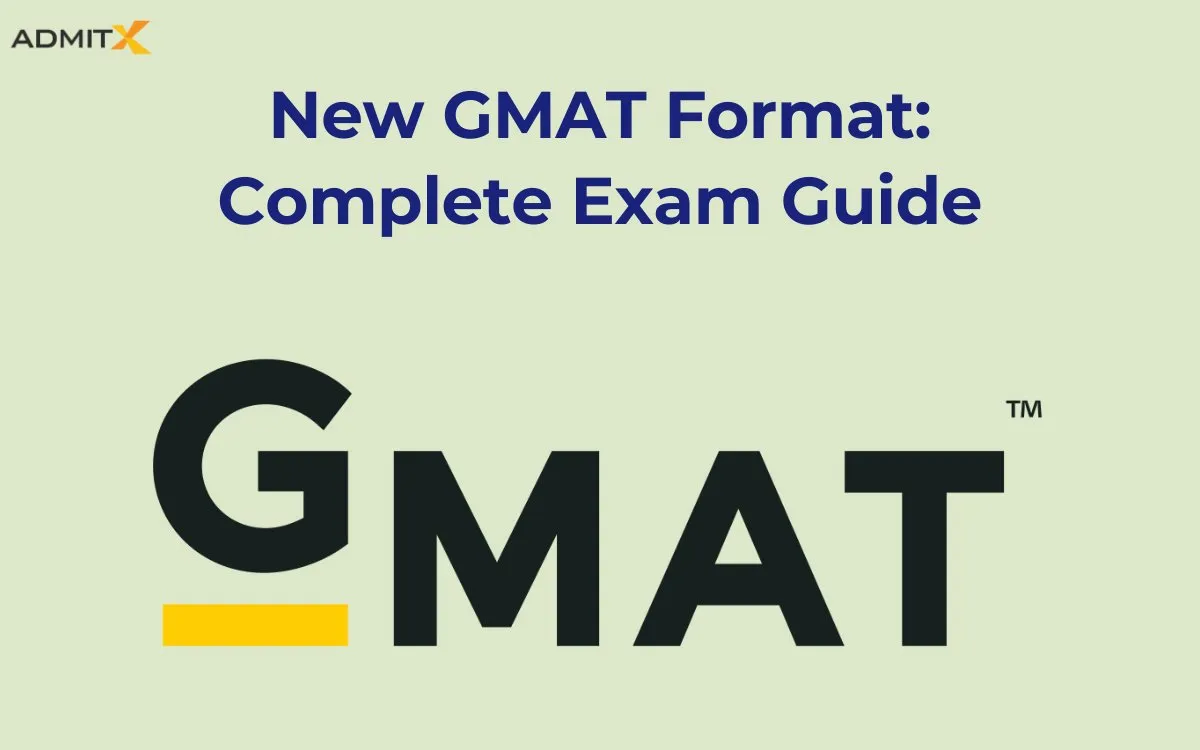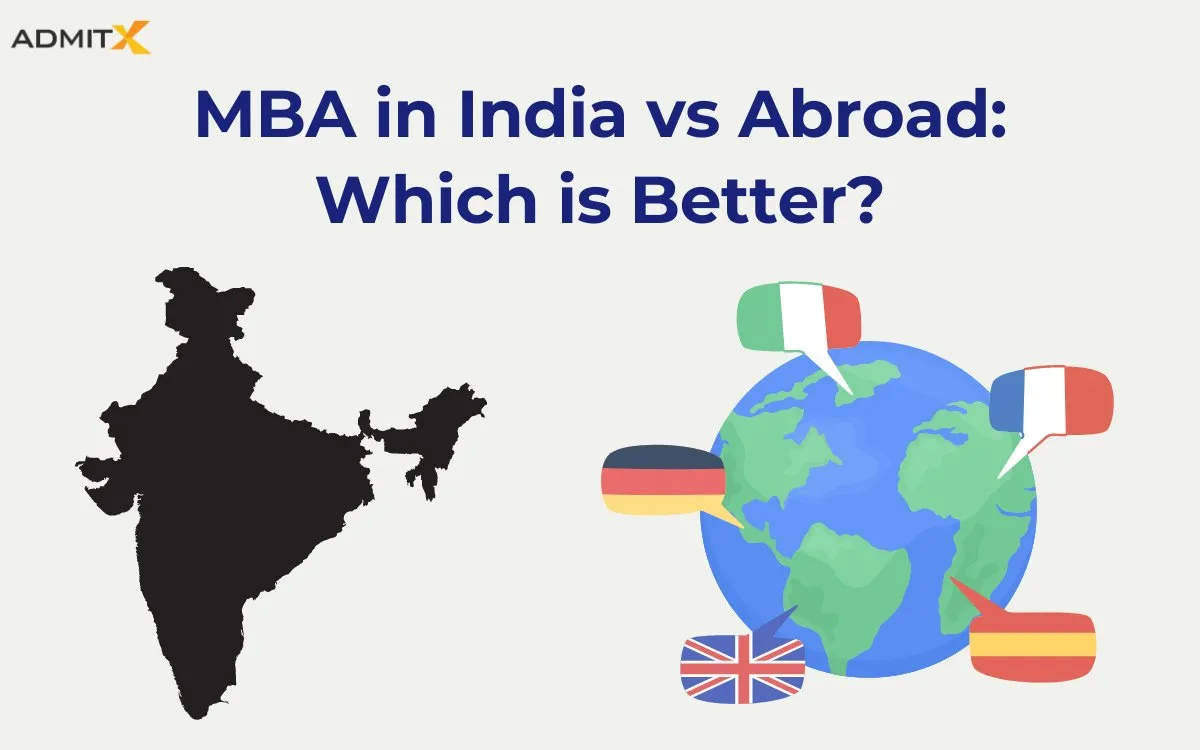
Master’s in Finance Courses: Top Universities, Eligibility and Application Process
A Master’s in Finance provides graduates with a strong understanding of managing money and analysing financial information. These courses explore the theories behind business, giving students in-depth knowledge of stocks, investments, personal finances, and how to effectively control spending. Additionally, studying a Master of Science (MSc) or Master of Business Administration (MBA) in Finance abroad can open the door to PhD studies in financial engineering.
This path allows graduates to conduct their research and contribute new ideas to the field of finance.
Why Pursue a Masters in Finance Abroad?
Choosing between a Master of Science (MSc) in Finance and an MBA specialising in finance can be a challenge for international students. Both paths can lead to careers in investment banking and corporate finance. However, there are compelling reasons to consider obtaining your finance qualification from a reputed university abroad:
- Gain a Global Financial Perspective: Master’s programmes in Finance are designed with the international financial market in mind. Students gain a comprehensive understanding of global finance and practical experience in how the industry functions across borders.
- Enhance Your Employability: A Master’s in Finance equips you with the knowledge and skills required by employers. This qualification can open doors to careers in finance or provide a strong foundation for launching your own business.
- Develop Practical Skills: A Master’s in Finance goes beyond theory. You’ll learn to apply financial concepts in real-world scenarios, from analysing profit and loss ratios to managing payroll and budgets.
- Increase Your Market Value: A Master’s in Finance is a highly sought-after qualification, particularly among international students. While the specific curriculum may vary, the core principles of finance remain consistent, providing a strong foundation for further education.
Master’s in Finance Courses
A Master’s in Finance provides you with a comprehensive understanding of financial principles and their practical applications. The programme incorporates a variety of learning methods to ensure a quality educational experience.
Programme Duration
Master’s in Finance degrees last between one and two years, depending on the institution. Many universities worldwide offer placement opportunities and paid internships to help students gain valuable industry experience.
Core Coursework:
The core curriculum provides a strong foundation in essential financial concepts and helps in the development of key skills such as leadership and communication. Core courses may include:
- Investment Analysis and Management
- Financial Planning
- Risk Management and Insurance
- Commercial Banking
- Financial Markets and Trading
- The Future Of Finance
Additional Subjects:
To stay updated with the global finance setup, Master’s in Finance programmes also include advanced subjects beyond core financial theory. These may include:
- Quantitative Methods for Finance
- Portfolio Management Strategies
- Managerial Economics
- Quantitative Finance (e.g., financial modelling using specialised software)
- Computational Finance (e.g., utilising computer programming for financial analysis)
- Private Equity Investment
Specialisation Options:
Following a strong foundation in core financial principles, many Master’s in Finance programmes allow students to pursue specialisations in specific areas of interest. These specialisations enable graduates to develop expertise in chosen fields:
- Asset Management
- International Finance
- Financial Management
- Financial Engineering
- Financial Markets
Top Universities Offering Masters in Finance
There are many universities which offer master’s in finance abroad. These universities are reputed and give excellent returns on investment to the students through scholarships and placements. Here is a list of the top universities for masters in finance according to QS Business Masters Ranking 2024:
| University | QS Business Masters Rankings 2024 | Course | Duration | Tuition Fee |
|---|---|---|---|---|
| HEC Paris | 1 | Master in International Finance | 10 months | €43,800 |
| Oxford | 1 | MSc Financial Economics | 9 months | £55,630 |
| London Business School | 3 | MSc in Financial Analysis | 16 months | £47,500 |
| MIT (Sloan) | 4 | Master of Finance | 12 months | $91,250 |
| UC Berkeley (Hass) | 5 | Master of Financial Engineering | 1 Year | $82,901 |
| Cambridge (Judge) | 6 | Master of Finance | 1 Year | £55,080 |
| ESSEC Business School | 7 | Masters in Finance | 1-2 Year | €55,000 |
| London School Of Economics | 8 | MSc Finance | 10 months | £44,928 |
| UCLA (Anderson) | 9 | Master of Financial Engineering | 15 months | $93,120 |
| Bocconi University | 10 | MSc in Finance | 2 Years | €18,000 |
Career Opportunities After Pursuing Masters in Finance
The field of finance offers various career paths globally, ranging from financial management and insurance to commercial banking and venture capital, providing numerous job opportunities. After completing their MS in finance, individuals have the opportunity to seek employment in various fields, including accounting, communications, marketing, public relations, and more. Here are a few jobs after pursuing a master’s in finance:
| Job Opportunities | Salaries (Per Year) |
|---|---|
| Financial Advisor | $57,000 (INR 45 Lakhs) |
| Financial Services Sales Agent | $64,000 (INR 51 Lakhs) |
| Financial Manager | $72,000 (INR 57 Lakhs) |
| Financial Analyst | $83,000 (INR 66 Lakhs) |
| Investment Banker | $1,73,428 (INR 1 cr) |
| Financial Risk Manager | $163,357 (INR 1 cr) |
| Credit Manager | $118600 (INR 99 Lakhs) |
Admission Requirements for Master’s in Finance Programmes
International students seeking admission to Master’s in Finance programmes at top universities will need to meet specific eligibility criteria and submit the necessary documentation. Here’s a detailed breakdown of the key requirements:
Academic Background:
Bachelor’s Degree: A Bachelor’s degree in finance, accounting, or a closely related field from a recognised university is mandatory.
English Language Proficiency:
Test Scores: International students must showcase English language proficiency through globally recognised tests like IELTS, TOEFL, or PTE. These scores are crucial for both visa applications and university admissions. Typical score requirements range from:
- TOEFL: 80-100
- IELTS: 6.0-7.5
- PTE: 50-59
Standardised Tests:
GMAT/GRE Scores: While not mandatory at all universities, some top institutions may require GRE or GMAT scores for international applicants. A competitive score for these tests would be:
- GMAT: 700 or higher
- GRE: 320 or higher
- GMAT Focus: 720
Work Experience:
Experience: While optional, some universities may prefer applicants with relevant work experience in finance (typically 2-3 years).
Passport & Student Visa
All international students must possess a valid passport and secure a student visa for the country they intend to study in. Initiating the visa application process at least 3 months before your expected departure date is advisable.
Also read – Ways to Fund your Overseas Education
Required Documents and Admissions Process
Securing admission to a top Master’s in Finance programme abroad requires submitting a specific set of documents. Here’s a breakdown of the documents you’ll need:
- Educational Transcripts: Submit official transcripts from all previous institutions.
- Standardised Test Scores: While not mandatory at all universities, some reputed institutions may require GRE or GMAT scores for international applicants.
- Letters of Recommendation (1-2): Provide letters from professors or employers who can speak to your academic ability and professional potential.
- English Language Test Scores: Showcase English language proficiency through internationally recognised tests like IELTS, TOEFL, or PTE. These scores are crucial for both visa applications and university admissions.
- Updated CV or Resume: Showcase your academic and professional qualifications and achievements in a well-structured format.
- Statement of Purpose: In this essay, explain your motivations for pursuing a Master’s in Finance, outlining your career goals and how this programme aligns with your aspirations.
- Valid Passport: Ensure your passport is updated and will be valid for the duration of your studies abroad.
- Study Permit: Obtain the necessary student visa for the country where you’ll be studying. Initiate the visa application process in advance (ideally, at least 3 months before your departure date).
Step-by-Step Guide to Applying for a Master’s in Finance Abroad
According to the QS Ranking, approximately 156 institutions rank among the world’s best for Master’s in Finance degrees, with a significant presence in the US (57) and UK (26). Here’s a list to guide you through the application process for top universities:
- Research Universities: Identify universities offering Master’s in Finance programmes that align with your interests.
- Gather Information: Explore university websites to gather detailed information on admission requirements, programme curriculum, and application deadlines.
- Prepare Documentation: Compile all necessary documents, including transcripts, test scores, reference letters, and proof of English language proficiency.
- Submit Application: Complete the online application form carefully, ensuring all required details are provided. Pay the application fee as instructed.
- Interview: Shortlisted candidates may be invited for an interview as part of the admissions process.
- Admission Offer: Upon successful completion of the application process (including the interview, if applicable), you will receive an offer of admission.
- Acceptance and Enrolment: Accept the offer and confirm your place at the university.
- Tuition Fees: Finalise tuition fee payment to secure your enrolment.
- Visa Application: Obtain the necessary student visa for the country you are going to study in.
Conclusion
Pursuing a master’s in finance from reputed universities abroad provides you with various job opportunities which speaks for bright prospects. Following the guidelines provided by each university in terms of documents and their admission process, you can easily get into your dream university to pursue a master’s in finance. Moreover, the course structure helps you in gaining real-life experience which will help you in your career.
FAQs
Can a Master in Finance boost my salary?
In many cases, a Master’s in Finance can lead to a significant salary increase. This qualification equips you with advanced financial knowledge and skills, making you a more attractive candidate to employers.
Which is the best country to study for a master's in finance in terms of living expenses and job availability?
Countries like Germany, France, and Spain offer well-regarded Master’s in Finance programmes with tuition fees that might be lower than those in the US or UK.
How can you finance your master's degree abroad?
Here are some options to consider:
- Scholarships and Grants
- Student Loans
- Savings
- Part-time Work (if permitted)
Is a Masters in Finance a good choice?
Whether a Master’s in Finance is a good choice depends on your individual goals and career aspirations. Here are some factors to consider:
- Career Goals
- Work Experience
- Financial Investment
Can I study finance without maths?
Yes, you can pursue a Master’s in Finance without Maths, however, you need to have a strong understanding and grip on statistics.
If you are an aspirant looking to study at your dream university, book an appointment with AdmitX today and start your applications early to avail yourself of all the benefits.




